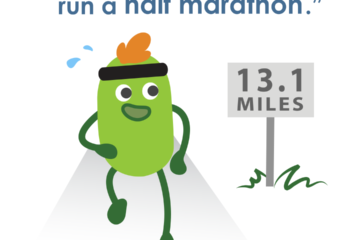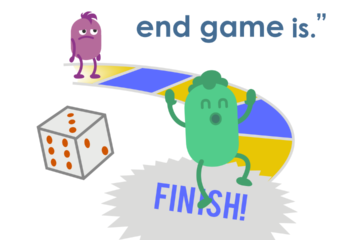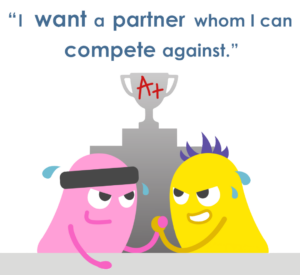Not every buddy can meet in person.
Fortunately, to get the benefit of accountability and motivation, you don’t need to.
In fact, you could even connect with someone on the other side of the world, working in a radically different culture, and still reap the benefits of a supportive buddy relationship.
I can hardly imagine a better match having been made. So, well, thank you. Thank you very much.
Michael M. is based in Texas and pursuing an advanced degree in mental health, and he matched with Sheri K., who’s pursuing her PhD in Human Rights in Tehran, Iran.
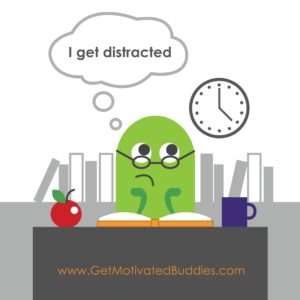
Meet Michael
First Name: Michael
Sex: Male
Age: 41
Timezone: CST
Describe yourself primarily as: Student
What area you’d like to improve: Study
Goal: Waking early, meditating, exercising, studying early, eating healthily, regular daily and weekly study sessions to stay on top of everything and not be a crammer
Greatest weakness: stress and distractions
Greatest strength: imagination
How often would you like to be in contact: Multiple days per week
Preferred mode of contact: SMS, Email, Whatsapp, Facebook Messenger, Skype
Anything else you’d like your buddy to know: I’m a mid-age returned college student, working on becoming a PMHNP, currently in an accelerated BSN program. I have multiple goals: 1) meditate each morning (as a primer), 2) exercise daily – preferably in the morn, 3) eat three light and healthy meals a day, 4) study consistently each day in order to move from an A-crammer to an A-on-top-of-it student. I also have weekly goals that involve study, no drinking, and no “TV”. I used to be a traveling teacher and artist, and instead of using TV for down time, I would rather work on languages and/or art. Oh, and I’m pre-diabetic, having put on a lot of weight in my 30s (went from a healthy 165 to a chubby 195), and so that’s some extra incentive there.
Where are you located?
Currently Texas, USA.
What are you working on, and why is it important to you?
I am primarily focused on an advanced degree in psychiatric mental health. This is important to me because while I led a successful life in my previous occupation and business (I was a language and arts teacher and an overseas film composer), I always had an itch to go back to school and study science and psychology. Many of my older family work in mental health, and I grew up immersed in their libraries. This planted a seed, a craving to learn more about life and people, to understand what it means to be human, to explore perceptions and experience. My undergrad was anthropology and linguistics, and I spent most of my adult years traveling and engaging people with art. The current studies are, I think one could very easily say, that door that has always been waiting for me, in the Campbellian sense.
The term “accountability partner” isn’t commonly used. Where did you first hear about it, (or did you even hear it) and what made you think it might be a good idea for you?
Perhaps this particular word pairing is a bit new, but partnering up with someone who has a shared goal is of course something that has always been around. For decades, as an easily relatable example, many people hitting the gym find they go more often and make more progress when they go with a friend who also sincerely wants to progress. This sort of thing has stretched into modernity with virtual diet and exercise buddies, who are of course accountability buddies. The accountability partner paradigm at Get Motivated has opened this concept up holistically, allowing the idea to incorporate anything that a person is interested in, any goal that you want to accomplish.
Now I must admit that ideally–not ideal for everyone but I would think for most–you have a person there physically in real time to help push you towards your goals. But this is not always realistic. Correction: this is often not realistic. The next step is an accountability partner, which granted sometimes may feel like a sort of ghost in the machine, but gets you to step out of that singular internal dialogue and have an actual back and forth with another voice, another perception, another realm of thought and experience. You have another real human who shares similar goals to you and thus can know personally obstacles you may be facing. And not only does this person help push you along your chosen path, but specifically because you reflectively do the same for that person, for your partner, you are in a certain projective sense counseling yourself again through them. So for both of you, you have this sort of psychological one-two feedback assertion mechanism.
What had you been trying before that wasn’t working?
Well, I had tried this sort of thing with friends and family, but that doesn’t always work for two reasons: one is that my schedule and parameters constantly shift, and it’s hard for others to keep up; the second is that when people don’t have goals which align with yours, while they be as well-intentioned and sincere as possible, they will still miss out on things, they will not for example foresee as readily obstacles you may encounter. Their help in the end may be somewhat light-level reactionary, without really feeling the gravitas you want to place. These sort of arrangements tend to start well, but can fade into the occasional, “Oh yeah, hey, how is that thing that you were working on?..”
Similarly, if you are just trying to face this all yourself, well, life sometimes rolls along in a sort of sing-song simplicity, but it’s only a matter of time before not just a wrench but the whole toolbox is thrown at you, threatening to derail you. And even if we step out of dramatics, the fact is that life constantly has surprises, twists and turns, and even just distractions. I would try notes and habit-building to keep consistency steadfast, but again with a rotating schedule and just life’s distractions in general some habits can be hard to build and others have to constantly be modified for new circumstances (which questions the accuracy of the term “habit”). A buddy is that kindred voice who reminds you when you have begun to stray.
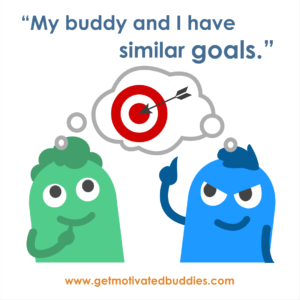
Once you decided that finding someone to work with might be helpful where did you go? What was your plan to find someone?
I think I may have actually Googled the words “accountability partner”.
Did you have a plan in mind of how you would work with the person? Did you imagine the perfect scenario of a relationship?
No plan, no perfect scenario. First was just to feel it out and see what existed, then comes testing the waters and fine tuning. Ideally, well… I think this rolls into the next question…
Once you joined GetMotivatedBuddies how long did it take you to match with one another, and what made you decide to accept this buddy?
I turned down my first two matches, and realized the problem was the parameters I had set. While there were several things I wanted to work on, ultimately I decided that what would likely be best for me was another adult who had returned to school. So I believe I modified my partner search parameters to post-20s, student. The very next match was a win.
Once you matched what happened? How did you move forward?
Well, I was immediately impressed with the match. It seemed perfect. We both have a lot of travel experience and artistic backgrounds–in overlapping fields, at that. We’re both multilingual, although I guess luckily for me our strongest overlap there is my mother tongue, and she is also preparing to take the IELTS so that’s double the reason for us communicating predominantly in English. I must confess that in the delay between me accepting the match and her accepting, I wondered if the mixed gender would be an issue. While I have had Iranian friends in the past, I can’t say I am well-versed in modern Iranian culture, and the question admittedly arose if there would be a complication. Thankfully, there seems to be nothing of the sort.
Last but not least, we both were adults returning to school for graduate studies, and we both have chosen as graduate subjects that of helping other people. The common ground stretches further.
Did you set up a system? What kind of conversation did you have?
In our first contact, I had just received you guys’ email regarding how to set up a successful accountability partnership. I read that and then contacted my new partner with a brief hello/intro, before diving right into business mixing my ideas and your advice. She responded in kind, with her thinking on the matter, and we decided to roll with a popular chat app we both had for contact. We also setup a Google Sheet as a sort of experimental goals tracker.
As you started to work together did you find you needed to change anything?
I’m not sure if the Google Sheet will work out, though I think it’s a good idea to track each other’s progress somehow. Key words being each other’s. We’re in this together as a team.
How do you primarily communicate and how often?
Currently it’s mostly chat. We generally have daily check-ins.
Do you feel the buddy partnership has helped? If so, how?
Yes, I do. However we have only been going for a few weeks, and I feel it’s a little too early to comment here. We need something a tad more longitudinal. Ask me again in six months.
What are the pitfalls of this kind of relationship?
Honesty, personal matters, and continuity. You must be honest with yourself and with your buddy, otherwise you undermine the purpose of the partnership. Personal life can and will intrude on your goals, because that’s what it does. This means that in order to help each other out, you will inevitably build a friendship of sorts, something that goes beyond the goals. The type of friendship will depend on the characters of you both, the stressors of your individual lives, and how well they all blend, as it is with all relationships. This also means it can fail, as it is with all relationships, and the accountability partnership can fail with it. This brings us to continuity. In a virtual relationship there’s always the distinct possibility one person suddenly
What advice would you give other buddies who have started to work together to encourage a successful working partnership?
Start off slowly. The guys at Get Motivated will tell you this themselves. Whether or not you have a partner, if you set too many goals, if you’re too demanding, there is the threat that you are setting yourself up for failure. You must know yourself, and know that confidence and strength comes from meeting goals. If you set smaller goals, you will strengthen yourself for the next ones as you succeed in the previous. I feel a little guilty for plugging myself, but in one of my stories I wrote, “Tend your garden. Life is a slow play of attrition and culmination, bit by little bit. Even dust, accumulated, becomes a mountain.” 「塵も積もれば山となる。」
Be honest with yourself and each other, especially regarding your goals. Get to know each other so you can help each other better, and also so you can understand better the information to give your partner. But there’s no need to rush this phase. Focus on each other’s goals, touching on other matters as they arise, as it feels appropriate. I say it again–there’s no need to rush this phase.
Love what you are doing. Love your goals. This is just life advice in general. This area can be tricky because necessity demands we occasionally have goals that we do not love. But what makes this interesting is that as people progress in a skill or a development, as they get better and better at it, they learn to love it. So if you have one of those necessary goals that is hard to love in the beginning, buckle down on that one with your partner to help get you through those early difficult stages so that you can grow into the later more successful and more enjoyable stages. The immensity of positive feelings, the satisfaction and confidence that comes from breaking through something arduous and disliked, turning it into something enjoyed, something you can feel proud of, is one of the best feelings in life. It sometimes makes a person.
Finally, always remember you are a team.
Click here to read Part 2: Interview with Sheri.
What has worked best for you in supportive relationships? Let us know in the comments below.
